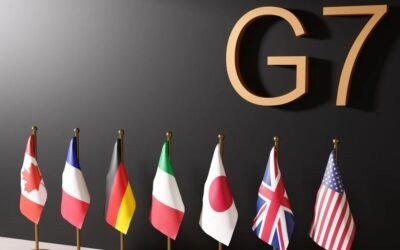The global internet, once envisioned as a borderless network fostering open information and commerce, is increasingly fragmenting along geopolitical lines. The rise of digital sovereignty as a national priority is creating a new digital Iron Curtain, where states are asserting greater control over their digital spaces. This trend is not merely a matter of technical standards; it is a fundamental reordering of global power, with profound implications for commerce, human rights, and the potential for a new digital Cold War.
The Anatomy of Digital Sovereignty and Splinternets
Digital sovereignty is a concept that a state should have the power to govern and control its own digital infrastructure, data, and information flows. This nationalistic approach stands in stark contrast to the original ethos of a free and open internet. This pursuit of digital autonomy is manifesting in a variety of ways across the globe, leading to the creation of splinternets national or regional internets that are increasingly isolated from the global network.
China’s Great Firewall
The most well-known example of a splinternet is China’s Great Firewall, a sophisticated system of censorship and surveillance that blocks access to a wide range of foreign websites, social media platforms, and news outlets.6

Source: Human Rights Watch
This not only controls the information available to Chinese citizens but also forces foreign companies to comply with strict regulations, effectively creating a separate digital ecosystem. China’s model of cyber-sovereignty is one of state control and censorship, a model that other authoritarian regimes have sought to emulate.
EU Data Regulations
The European Union’s approach is different, but also a form of digital sovereignty. Through regulations like the General Data Protection Regulation (GDPR), the EU has established a legal framework for data privacy and protection that has an extraterritorial reach.
You May Like To Read: U.S. Imposes New Sanctions on Entities Trading in Iranian Oil
The “Brussels Effect” means that companies operating globally must comply with EU standards to do business with EU citizens, making EU regulations a powerful tool for projecting its values and asserting its digital influence. This is less about censorship and more about controlling data flows and challenging the dominance of American and Chinese tech giants.

Source: European Commission
US Domestic Innovation
The United States, while historically a proponent of a free and open internet, is also increasingly embracing a form of digital sovereignty. The US AI action plan, for example, prioritizes domestic innovation and seeks to maintain America’s global lead in artificial intelligence. This focus on national technological dominance, along with a growing concern about supply chain security and the dominance of foreign technology, points to a shift toward a more insular and competitive digital strategy. This approach, centered on controlling the technological “stack,” from semiconductors to software, sets the stage for a great power competition over who controls the core technologies of the future.

Source: White House
Geopolitical Consequences of Fragmentation
The fragmentation of the global internet has far-reaching geopolitical consequences, disrupting traditional norms and creating new arenas for conflict including Global Commerce and Information Flow. The splinternet directly impacts global commerce by creating barriers to trade and investment. Companies must navigate a complex patchwork of conflicting regulations, data localization requirements, and censorship laws, increasing costs and hindering seamless cross-border operations.
You May Like To Read: Trump Announces Tariff Deal, Boosting Pakistan’s Trade Prospects
The free flow of information, once a hallmark of the internet, is being stifled, making it more difficult for businesses, academics, and individuals to collaborate and innovate. Furthermore, for citizens living under authoritarian regimes, the fragmentation of the internet is a direct assault on human rights, particularly the right to freedom of expression and access to information.
Censorship and surveillance are used to suppress dissent, control narratives, and maintain political power. As more countries adopt similar models, the ability of human rights organizations and activists to operate freely is severely curtailed, and the potential for digital repression increases. The competition for digital dominance is evolving into a new “digital Cold War.” This is a battle for technological supremacy, where data centers, cloud infrastructure, and undersea cables become geopolitical battlegrounds.
Countries are vying to control the physical and virtual infrastructure of the internet, seeking to reduce their reliance on foreign technologies and exert influence over their allies. The competition between the US and China over 5G networks and artificial intelligence is a prime example of this rivalry, forcing other nations to choose sides and align themselves with one technological ecosystem or the other. This creates a risk of a bifurcated global technology landscape, where incompatible standards and platforms prevent interoperability and collaboration.
Epilogue
The Digital Iron Curtain is not an abstract concept; it is a tangible reality that is reshaping the modern world. The pursuit of digital sovereignty, whether driven by economic protectionism, ideological control, or national security concerns, is leading to a less open, less connected, and more volatile global digital environment.
As the lines between the physical and digital worlds blur, the control of cyberspace is becoming as critical to national power as the control of land, sea, and air, setting the stage for a new era of geopolitical competition.



























